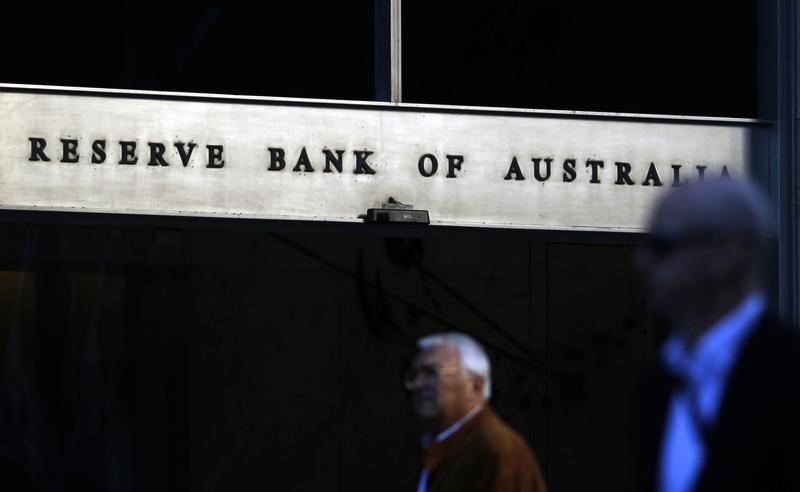Investing.com - The Reserve Bank has unveiled the potential perils of additional rate increases, attributing a slower-than-anticipated economic growth as a significant factor for maintaining the cash rate for only the second time in over a year.
Details from RBA's July meeting minutes indicate that while there was consensus on probable further tightening of monetary policy to manage inflation, it was agreed that more comprehensive data on both inflation and the economy were necessary to prevent any drastic actions by the central bank.
During this gathering, members contemplated an increase in rates by 25 basis points. However, they collectively decided that justifications for keeping them unchanged were “stronger”, as indicated in the meeting minutes.
It was concluded at this session that Australians are yet to feel the full impact of twelve rate hikes since last May. The board expressed concern about potential slowdowns in output growth which could exceed expectations leading to potentially disastrous outcomes.
“The deceleration in overall economic activity and specifically consumption aligns with anticipated trends considering household income and wealth,” stated within the minutes.
“Nevertheless," members noted, "there is substantial uncertainty regarding how robust household consumption will remain under pressure from financial constraints possibly resulting in sharper than expected declines."
They also commented on higher interest rates possibly encouraging increased savings amongst households thereby affecting consumption levels. If such changes occur, it would slow demand for labor leading unemployment rates to rise beyond what is necessary for controlling inflation effectively within reasonable periods.
The board highlighted mortgage payments have already reached historical highs accounting for 9.4% of household income while discussing wage growth which lagged behind inflation causing real incomes to fall dramatically by four percent year-on-year till March.
While assessing reasons favoring a possible rate hike, they pointed out persistent above-target inflation forecasts arguing without further tightening of monetary policies these timelines might extend even further.
Board members identified increasing rent costs and service charges among consumer price categories demonstrating consistent inflationary pressures.
Despite nominal wages appearing stable amidst tight labor market conditions; they predicted conducive environments likely promoting above-average price hikes along with wage increments under such high employment demands.
Simultaneously acknowledging declining inflation trends; slowing economic expansion seemed effective towards achieving better alignment between supply-demand dynamics eventually reducing overall inflation over time.
"Given these considerations", states meeting records, "members unanimously agreed upon holding steady current cash rates reassessing circumstances during upcoming August meetings."
Members concurred additional monetary policy adjustments may be needed depending upon future developments within both economy & prevailing inflations ensuring target achievements within acceptable timeframes."
This conference marked final participation before Deputy Governor Michele Bullock replaces Philip Lowe, assuming top leadership roles starting September onwards.
